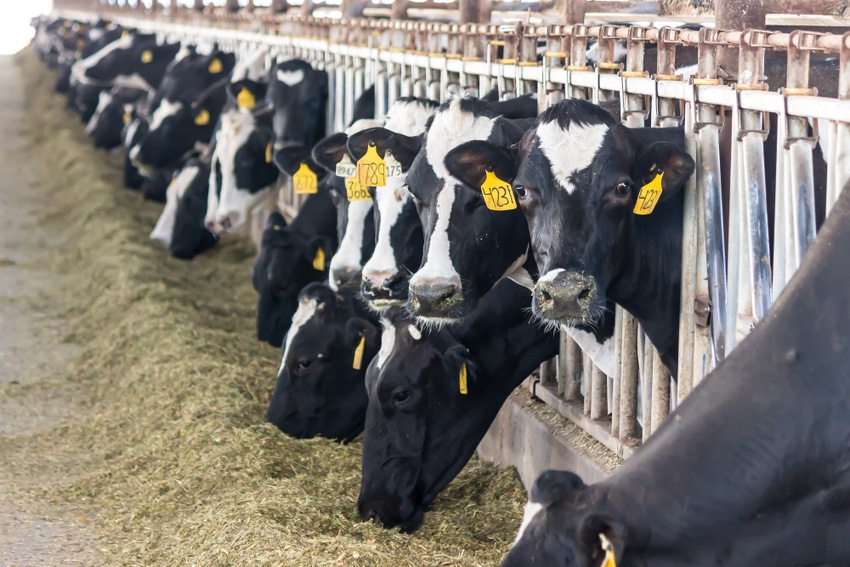September 12, 2018

Two public stakeholder workshops and one webinar are scheduled next week to assist applicants to the Dairy Digester Research and Development Program (DDRDP).
The aim of these workshops is to introduce dairy producers, new project developers, and other interested parties to the DDRDP and assist in improving the competitiveness of applications by reviewing common errors and issues.
The California Department of Food and Agriculture (CDFA) was appropriated $99 million from the Greenhouse Gas (GHG) Reduction Fund, authorized by the Budget Act of 2018, to provide financial assistance for early and extra methane emissions reductions from dairy and livestock operations by installing dairy digesters on dairy operations that capture methane GHGs.
“Ensuring that applicants to the DDRDP get the feedback they need to be competitive to receive funds is an outreach effort that is important to us”, said CDFA Secretary Karen Ross. “We hope stakeholders take advantage of these timely workshops as a benefit to all potential future applicants”.
The public workshops will be held on the following dates and at the following locations:
Date: Monday, September 17, 2018
Time: 1:00 pm – 3:00 pm
Location:
Agricultural Commissioner/Sealer Auditorium
4437 S. Laspina Street, Ste A, Tulare, CA
Date: Tuesday, September 18, 2018
Time: 9:00 am – 11:00 am
Location:
Stanislaus County Agricultural Commissioner’s Office
3800 Cornucopia Way, HI Room Modesto, CA
Date: Wednesday, September 19, 2018
Time: 1:00 pm – 3:00 pm
Location: Webinar
To register, visit https://attendee.gotowebinar.com/register/1542762541255847427
Grants awarded
The workshops come as the CDFA has awarded $21.6 million in grant funding to 40 alternative manure management projects across the state. These projects, part of the Alternative Manure Management Program, or AMMP, will reduce greenhouse gas emissions on California dairy farms and livestock operations by using manure management practices that are alternatives to dairy digesters (i.e. non-digester projects).
When livestock manure decomposes in wet conditions, it produces methane, a greenhouse gas 72 times more powerful than carbon dioxide. Changing manure management practices so that manure is handled in a dry form can help significantly reduce methane emissions. These reductions contribute to the state’s overall short-lived climate pollutant strategy under Senate Bill 1383, which aims to reduce California’s methane emissions to 40 percent below 2013 levels by 2030.
“I am excited to see the diversity of non-digester manure management practices among these projects to help meet the state’s climate goals”, said CDFA Secretary Karen Ross. “This is the innovation that California farmers are renowned for”, she added.
Financial assistance for the implementation of non-digester practices comes from California Climate Investments, a statewide initiative that uses Cap-and-Trade program funds to support the state’s climate goals. CDFA and other state agencies are investing these proceeds in projects that reduce greenhouse gas emissions and provide additional benefits to California communities. AMMP grant recipients will provide an estimated $2.7 million in matching funds for the development of their projects.
Information about the 2018 Alternative Manure Management Program projects is available at https://www.cdfa.ca.gov/oefi/AMMP/ .
The Alternative Manure Management Program is part of California Climate Investments, a statewide program that puts billions of Cap and Trade dollars to work reducing GHG emissions, strengthening the economy, and improving public health and the environment – particularly in disadvantaged communities. The Cap-and-Trade program also creates a financial incentive for industries to invest in clean technologies and develop innovative ways to reduce pollution. California Climate Investments projects include affordable housing, renewable energy, public transportation, zero-emission vehicles, environmental restoration, more sustainable agriculture, recycling, and much more. At least 35 percent of these investments are located within and benefiting residents of disadvantaged communities, low-income communities, and low-income households across California. For more information, visit the California Climate Investments website at: www.caclimateinvestments.ca.gov.
Source: California Department of Food and Agriculture
You May Also Like




